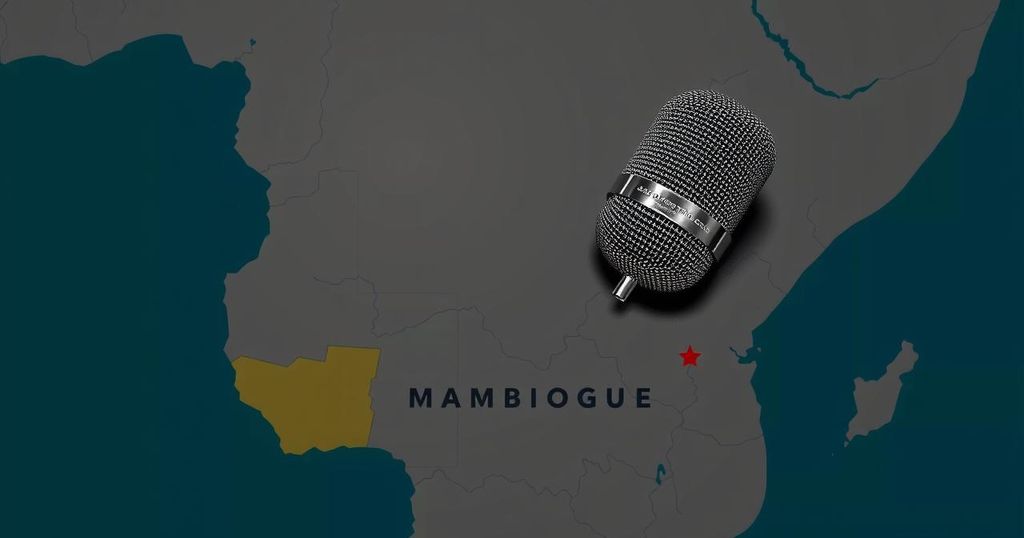Politics
AFRICA, CONGOLESE ARMY, CORRUPTION, DEMOCRACY, DEMOCRATIC REPUBLIC OF THE CONGO, DRC, ELIAS MAGOSI, EMMERSON MNANGAGWA, FORQUILHA, FR, HUMAN RIGHTS, MAGOSI, MAPUTO, MOZAMBICA, MOZAMBIQUE, OF MOZAMBIQUE, OPTIMIST PARTY FOR THE DEVELOPMENT OF MOZAMBIQUE, PODEMOS, REGIONAL COOPERATION, REPUBLIC OF MOZAMBIQUE, SOUTHERN AFRICAN DEVELOPMENT COMMUNITY, VENANCIO MONDLANE, ZIMBABWE
Marcus Li
0 Comments
SADC Summit Addresses Post-Election Violence in Mozambique
The SADC convened an extraordinary summit to address Mozambique’s election-related violence, condemned police actions, and urged legal solutions for grievances. Opposition parties, however, remain skeptical of the electoral process, disputing the results. The summit’s focus extended to regional stability issues, emphasizing the need for political dialogue and intervention.
The Southern African Development Community (SADC) held an extraordinary summit in Zimbabwe to address the escalating violence in Mozambique following the disputed elections. The meeting focused on recent civil unrest, wherein at least 30 protesters were reported killed by police, according to local civil society organizations. Allegations of electoral misconduct were levied against the ruling FRELIMO party, prompting concerns of legitimacy regarding the October 9 electoral outcome.
Elias Magosi, the SADC executive secretary, provided an update on the political and security situation in Mozambique and expressed the collective commitment of SADC to assist in restoring peace and stability in the nation. He extended condolences to the victims of the violence. Magosi urged those dissatisfied with the electoral results to seek legal recourse rather than resorting to violence.
Zimbabwean President Emmerson Mnangagwa, presiding over the summit, only briefly touched upon the situation in Mozambique, emphasizing instead the ongoing conflict in the eastern Democratic Republic of the Congo, where joint military actions are being undertaken against rebel forces. Prior to the summit, Albino Forquilha, representing the Optimist Party for the Development of Mozambique (PODEMOS), voiced skepticism about SADC’s impact on the pressing issues in Mozambique. He highlighted the party’s mobilization of protests against the electoral commission’s announced results, which diverged markedly from results observed at polling stations.
Forquilha advocated for transparency and fairness in the electoral process, stressing the importance of involving representatives from all competing parties in any validation of election results, which could contribute to public acceptance of the outcomes. The conclusion of the summit was marked by a call for dialogue, as President Nyusi extended an invitation for discussions among the four presidential candidates to quell ongoing disruption.
The post-election violence in Mozambique emerged after the October 9 elections, which were marred by accusations of electoral fraud by the ruling FRELIMO party. Reports indicate that police forcefully suppressed protests, leading to significant casualties among demonstrators. The political landscape remains fraught, with the opposition challenging the results that favor FRELIMO’s candidate Daniel Chapo. The SADC summit aimed to address not only the political unrest in Mozambique but also broader regional stability issues, highlighted by the conflict in the DRC.
The extraordinary summit of SADC highlighted significant concerns regarding the violence in Mozambique post-elections. With over 30 lives reportedly lost, the situation remains precarious as the opposition claims electoral fraud. SADC’s commitment to supporting peace and legal processes in Mozambique is crucial, yet skepticism persists among political factions regarding the effectiveness of such interventions. A broader dialogue among political stakeholders is essential for restoring stability and public trust in the electoral process.
Original Source: www.voanews.com




Post Comment